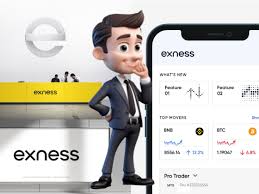
Competitive Exness Fees: A Comprehensive Guide
When it comes to online trading, understanding the intricacies of Competitive Exness Fees competitive Exness fees is crucial for both novice and experienced traders. Exness, a popular online forex broker founded in 2008, stands out in the competitive trading industry not just for its wide range of trading instruments but also for its transparent and competitive fee structure. In this article, we will delve into the various aspects of Exness fees, including spreads, commissions, overnight fees, and more. By the end, you’ll find out how to navigate these fees efficiently to optimize your trading experience.
Understanding Spreads
Spreads are the difference between the bid and ask prices of a currency pair. They represent the cost of trading and are a primary component of transaction costs. Exness offers various types of accounts that differ in terms of spreads. For instance, the Standard account tends to have wider spreads but no commissions, while the Pro account features tighter spreads with a small commission on trades.
Standard Account Spreads
The Standard account is suited for traders who are looking for simplicity and predictability. Spreads in this account often start from 0.3 pips, which is competitive compared to other brokers. The absence of commission on this account makes it a preferred choice for many traders.
Pro Account Spreads
On the other hand, the Pro account offers exceptional spreads starting from 0.0 pips, but it does charge a commission on trades. This account type is ideal for high-frequency traders or those employing scalping strategies. The total trading cost, therefore, becomes a sum of commissions and spreads, which still may end up being lower than those of brokers that charge only spreads.
Commissions on Trades
For active traders, understanding commissions is vital. In addition to spreads, Exness applies a commission on trades executed through the Pro account. The commission is typically set at $3.50 per lot for major currency pairs. This clear structure allows traders to project their trading costs effectively. For traders who operate at higher volumes, this could represent significant savings compared to other brokers that may employ a less transparent commission structure.
Overnight Fees (Swap Rates)

Overnight fees, also known as swap rates, are incurred when a position is held overnight. Exness charges swap points based on the currency pair and the direction of the trade (long or short). These fees can vary significantly and can impact the profitability of longer-term trades. Traders should always check the actual swap rates provided by Exness before opening positions if they plan to hold their trades overnight.
Deposit and Withdrawal Fees
Managing capital effectively means paying attention to deposit and withdrawal fees. Exness allows a variety of deposit methods including bank transfers, credit cards, and e-wallets. Notably, most deposit methods are free of charge, allowing traders to fund their accounts without incurring additional costs. However, it’s crucial to verify if there are any potential fees charged by your payment provider.
Withdrawal Expenses
Withdrawals at Exness are similarly structured, with many methods also being free. The broker’s commitment to transparency means that traders can easily access their funds without worrying about hefty withdrawal fees. Nevertheless, it’s advisable to check the specifics of each method as some may incur fees based on your local regulations or financial institutions.
How to Minimize Your Trading Costs
Understanding the dynamics of fees at Exness is one part of successful trading; the other is knowing how to minimize these costs. Here are some strategies you can apply:
- Select the Right Account: Choose between the Standard and Pro accounts based on your trading style. If you are a casual trader, the Standard account may be better, whereas high-frequency traders might prefer the Pro account despite its commissions.
- Develop a Trading Plan: Having a solid trading plan helps minimize unnecessary trades, thus reducing commissions and spreads.
- Opt for Longer-Term Trades: If you’re a position trader, consider holding trades for a longer term to avoid overnight fees where possible.
Conclusion
Competitive Exness fees are designed to cater to various trading styles and preferences. By understanding the components of these fees — spreads, commissions, overnight charges, and deposit/withdrawal costs — traders can make informed decisions that align with their trading strategies. Remember, the key to being a successful trader not only lies in making profitable trades but also in managing trading costs effectively. With Exness’s clear fee structure, traders have the transparency required to optimize their trading experience and maximize their potential profits.
Final Thoughts
Ultimately, choosing to trade with Exness can prove beneficial when you have a comprehensive understanding of the fees involved. This broker has established itself as a competitive player in the forex market, not just through its advanced trading platforms and variety of instruments, but also by making trading costs transparent and manageable. Whether you are just starting your trading journey or are a seasoned professional, being knowledgeable about competitive Exness fees will aid in enhancing your trading success.